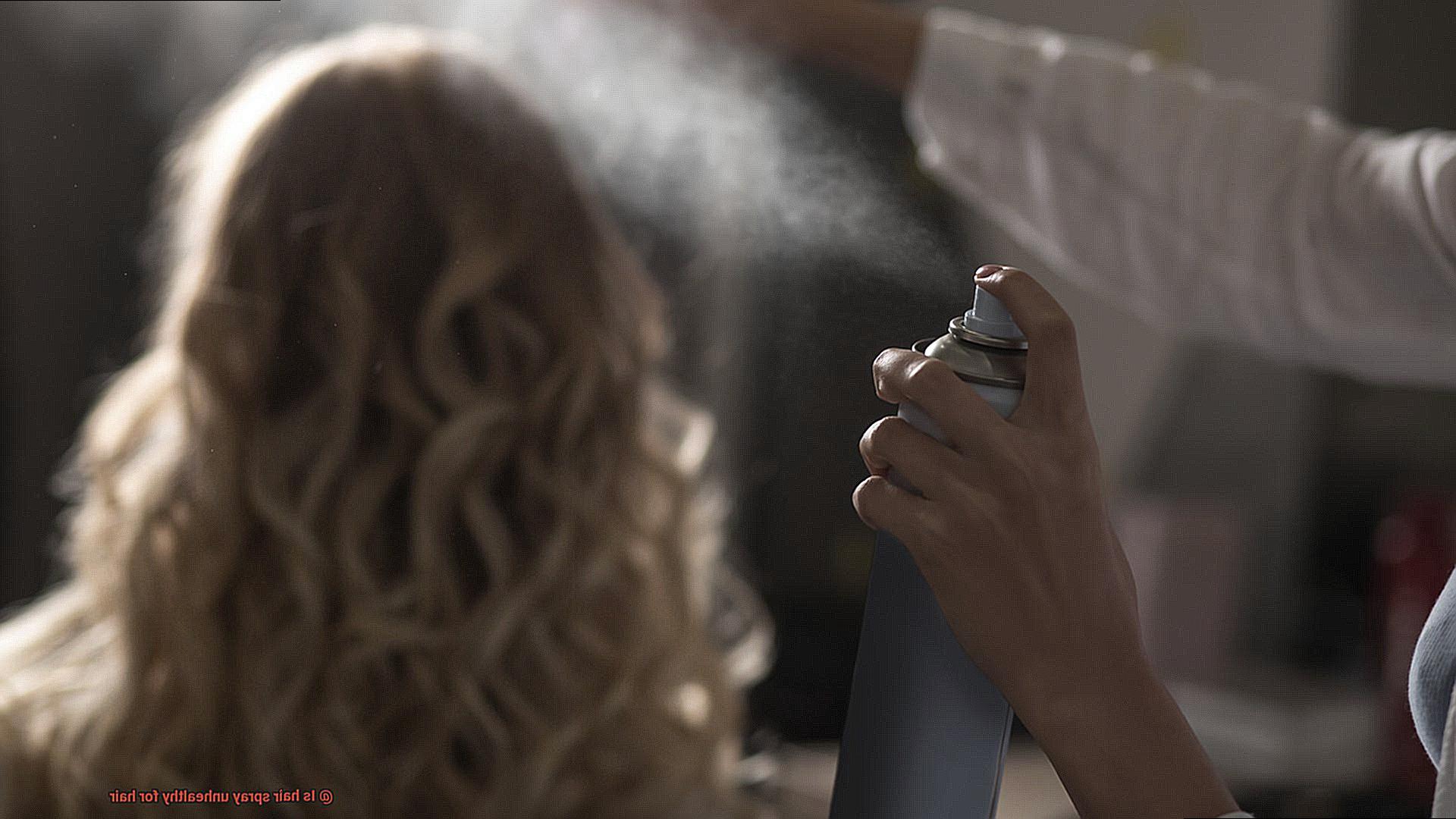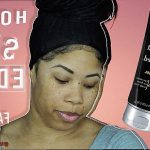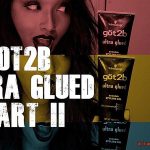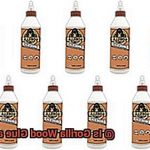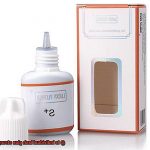Welcome, hair enthusiasts and curious readers, to our deep dive into the potential consequences of using hair spray. We all crave those enviable locks that can withstand anything life throws at us. But are we inadvertently damaging our hair in the pursuit of perfection?
In this blog post, we’ll explore the research, debunk myths, and even share personal stories to uncover the truth about hair spray’s impact on our precious tresses. From ingredients to risks and ways to mitigate any negative effects, we’ve got you covered.
So whether you’re a loyal user or considering adding hair spray to your routine, join us on this enlightening journey as we discover if our favorite styling aid could be secretly sabotaging our hair health. It’s time to get down to the root of the matter – pun intended.
Disclaimer: Remember, while we strive to provide educational content, nothing beats professional advice. Always consult with a qualified hairstylist or healthcare professional regarding your personal hair care needs.
Stay tuned for our upcoming discussion that promises knowledge and nourishment for your hair. Let’s separate fact from fiction and truly understand the impact of hair spray on our beloved strands.
The Pros and Cons of Hair Spray
Contents
- 1 The Pros and Cons of Hair Spray
- 2 Alcohol Content in Hair Spray
- 3 Chemicals in Hair Spray
- 4 Propellants in Aerosol Hair Sprays
- 5 Natural and Organic Formulations of Hair Spray
- 6 How to Minimize Damage from Hair Spray
- 7 Heat Protectant for Styling with Hot Tools
- 8 Deep Conditioning for Healthy Hair
- 9 Conclusion
Hair spray is a go-to product for many individuals, offering hold, volume, and texture to hairstyles. However, like any beauty product, it has its own set of pros and cons. In this comprehensive analysis, we will explore the advantages and disadvantages of using hair spray, helping you make an informed decision about whether it’s the right choice for you.
Pros of Hair Spray:
Provides Firm Hold and Control:
Hair spray is a reliable ally when it comes to keeping your hairstyle intact all day long. Whether you’re sporting an elegant updo or playful curls, hair spray ensures that your hard work doesn’t go to waste.
Adds Enviable Volume and Texture:
For those with fine or thin hair, hair spray can be a game-changer. It injects much-needed volume and texture into your locks, making them appear fuller and more voluminous than ever before.
Enhances Longevity of Hairstyles:
Thanks to its strong hold properties, hair spray keeps your hairstyle looking fresh for extended periods. Bid farewell to unruly flyaways or drooping curls – hair spray helps maintain the structure and shape of your desired look throughout the day or night.
Offers Versatility to Suit Your Needs:
Hair spray comes in various strengths and forms, giving you the flexibility to choose what works best for you. Whether you prefer a light misting spray or an extra-strong aerosol spray, there’s an option that perfectly aligns with your styling preferences.
Cons of Hair Spray:
Contains Potentially Harmful Chemicals:
Some conventional hair sprays contain ingredients like alcohol, parabens, sulfates, and synthetic fragrances. These chemicals may be harsh on the scalp, leading to dryness, irritation, and potential damage to the hair over time.
Can Lead to Product Buildup:
Continuous use of hair spray without proper cleansing can result in product buildup. This buildup leaves the hair feeling heavy, greasy, and lackluster while potentially clogging hair follicles, hindering healthy hair growth.
May Cause Stiffness and Crunchiness:
Certain hair sprays leave a stiff, crunchy texture on the hair post-application. This restricts the hair’s natural movement and flexibility, resulting in an unnatural look and feel.
Potential for Environmental Harm:
Aerosol hair sprays release volatile organic compounds (VOCs) into the air, contributing to air pollution and negative impacts on air quality. Opting for alternative propellants or more eco-friendly options can help minimize this environmental harm.
Alcohol Content in Hair Spray
Alcohol content in hair spray is a crucial factor to consider when evaluating its potential impact on hair health. Alcohol is a common ingredient in hair spray formulations due to its ability to dissolve other components and aid in the drying process. However, excessive alcohol content can have detrimental effects on your luscious locks.
Let’s start by discussing the drying effect of alcohol. This ingredient evaporates quickly, which means it can strip away moisture from your hair strands. Dry and brittle hair is a recipe for breakage and damage, so it’s essential to be mindful of the amount of alcohol in your hair spray.
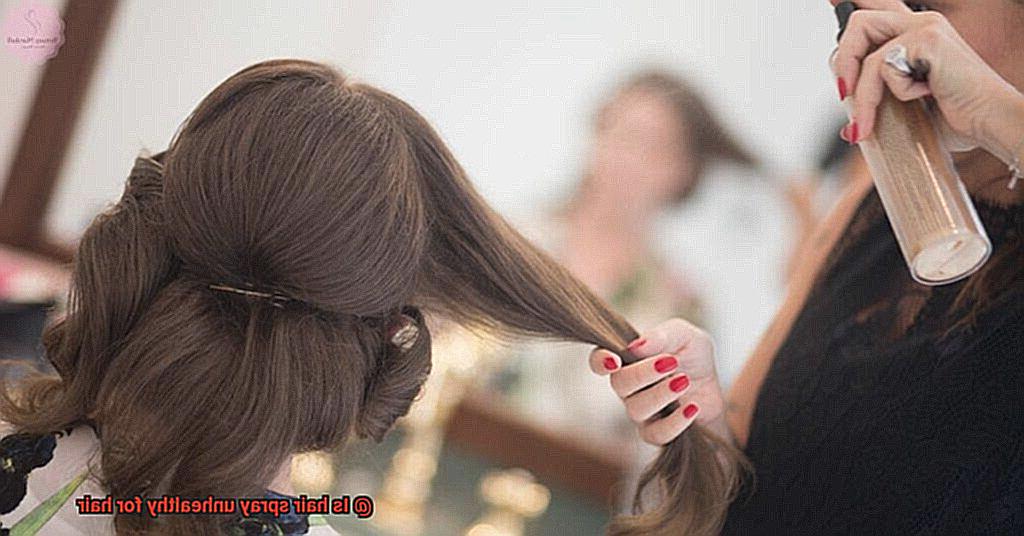
But that’s not all. Alcohol can also disrupt the natural oils on your scalp, which are essential for maintaining hair moisture and overall health. When alcohol interferes with this delicate balance, it leads to even more dryness and potential scalp issues. Nobody wants that.
Here’s another tidbit to consider: alcohol can strip away the protective layer of your hair cuticle. Think of the cuticle as a shield that safeguards your hair from external aggressors like heat styling tools, UV rays, and environmental pollutants. When this shield is compromised, your hair becomes more vulnerable to damage. And we all want our locks to stay strong and healthy.
Now, not all alcohols are created equal. Some alcohols used in hair care products can actually be beneficial for your tresses. Fatty alcohols like cetyl alcohol and stearyl alcohol are derived from natural sources and provide moisturizing benefits to your hair. So when shopping for hair spray, keep an eye out for these good guys.
To minimize the potential negative effects of alcohol in hair spray, here are a few tips:
- Look for products with lower alcohol concentrations or those that use fatty alcohols instead.
- Incorporate a leave-in conditioner or deep conditioning treatment into your routine to keep your hair hydrated and nourished.
- Practice proper hydration and conditioning practices to counteract the drying effects of alcohol.
Chemicals in Hair Spray
From polymers to propellants, let’s dive into the fascinating ingredients found in hair sprays and their potential effects on your hair and scalp. Get ready to embark on a journey of discovery.
Polyvinylpyrrolidone (PVP):
One of the key ingredients in hair sprays is polyvinylpyrrolidone (PVP). This remarkable polymer creates a film on your hair strands, delivering that long-lasting hold you desire. However, be cautious not to overdo it, as excessive use of PVP can leave your hair feeling heavy and stiff. Remember, a little goes a long way.
Alcohol:
Alcohol, another common chemical found in hair sprays, acts as a solvent and aids in quick drying after application. While it helps your style set in place, excessive use of alcohol can lead to dryness, especially if you rely on hairspray daily. Look for products with lower alcohol concentrations or those that contain moisturizing fatty alcohols like cetyl alcohol and stearyl alcohol.
Propellants:
Ever wondered how that magical fine mist of hairspray appears? Enter propellants like butane or propane. These gases create the aerosol spray effect, evaporating swiftly upon application. However, exercise caution not to inhale them excessively, as they can irritate your scalp and respiratory system.
Fragrances:
Who doesn’t appreciate a hair spray that smells divine? Fragrances are added to hair sprays to provide a delightful scent experience. However, it’s important to note that some fragrances may cause irritation for sensitive individuals or those with allergies. If you have a sensitive nose or skin, keep an eye out for fragrance-free options.
Safety and Individual Factors:
Not all chemicals in hair sprays are harmful. Reputable brands undergo rigorous testing to ensure product safety. However, individual factors such as hair type, sensitivity, and frequency of use play a crucial role. Some individuals may experience dryness, brittleness, or scalp irritation when using certain hair sprays regularly.
Conclusion:
Armed with this newfound knowledge about the chemicals in hair sprays, you can make informed decisions when selecting your go-to hair styling product. Remember to choose a hairspray formulated for your specific hair type and needs, and use it in moderation. If you notice any adverse effects, it might be time to explore alternative styling products or seek professional advice.
Propellants in Aerosol Hair Sprays
Propellants in aerosol hair sprays, those sneaky little chemicals responsible for delivering that mist of hairspray to your luscious locks, are a topic worth exploring. These propellants, often volatile organic compounds (VOCs) like propane, butane, and isobutane, have the power to ignite and evaporate effortlessly at room temperature. But what are the potential risks associated with them? Let’s dive in and find out.
First and foremost, VOCs can be irritating to your respiratory system, causing coughing, wheezing, and shortness of breath. They may even go a step further and wreak havoc on your central nervous system or contribute to certain types of cancer. Talk about a hair-raising situation.
But wait, there’s more. These VOCs don’t stop at harming our health; they also contribute to air pollution. When we use aerosol hair sprays indoors, these compounds can build up in poorly ventilated spaces, leading to indoor air pollution. Clean air is crucial for both our well-being and the environment, so this is no small matter.
But fear not. There is a glimmer of hope amidst the hairspray haze. Many manufacturers have recognized the potential harm caused by VOCs and have started developing hair sprays with alternative propellants that are safer for both us and the environment. Think compressed air or nitrogen—these eco-friendly options don’t emit those harmful VOCs into the atmosphere.
Hair sprays that use compressed air or nitrogen as propellants are often labeled as “eco-friendly” or “environmentally safe,” making them a better option for our health and the planet. However, it’s important to note that not all hair sprays have made the switch to these safer propellants, so be sure to read those product labels.
Natural and Organic Formulations of Hair Spray
Many people are now turning to natural and organic formulations of hair spray for a safer and eco-friendly alternative. Let’s delve deeper into the benefits and drawbacks of these eco-friendly options.
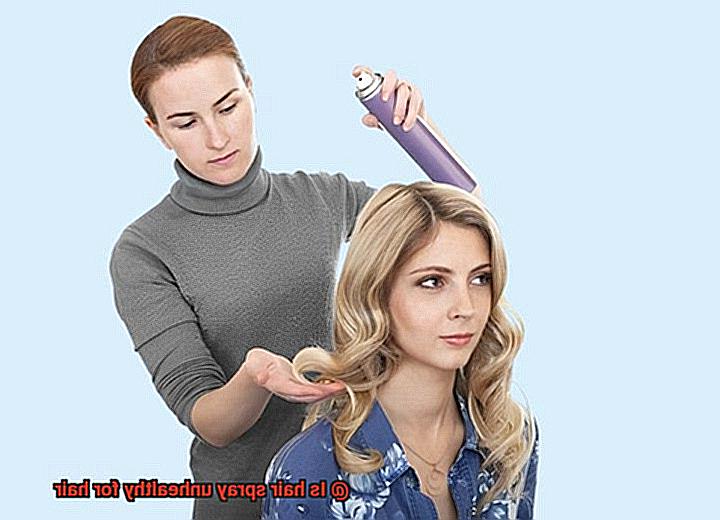
Benefits:
- Non-toxic: Say goodbye to parabens, phthalates, and synthetic fragrances. Natural and organic hair sprays are free from these harmful chemicals, allowing you to style your hair without worrying about potential health risks.
- Environmentally friendly: By choosing natural and organic hair sprays, you’re making a greener choice. These formulations involve fewer harmful chemicals and less energy consumption during production. Additionally, many come in recyclable or biodegradable packaging, further reducing their impact on the environment.
- Gentle on hair and scalp: Unlike their synthetic counterparts, natural hair sprays contain plant-based ingredients like botanical extracts and essential oils. These ingredients are believed to be gentler on the hair and scalp, minimizing damage and irritation.
Drawbacks:
- Hold and longevity: It’s important to note that natural and organic hair sprays may not provide the same level of hold and longevity as conventional sprays. This is because they lack certain synthetic ingredients that enhance staying power. However, advancements in formulation have led to the development of stronger hold options that can rival conventional sprays.
- Allergies and sensitivities: While natural and organic hair sprays are generally safer for both hair and overall health, it’s crucial to check the ingredient list if you have specific allergies or sensitivities. Some natural ingredients can still cause reactions in certain individuals.
How to Minimize Damage from Hair Spray
Hair spray is a fantastic styling product that helps you achieve the perfect hairstyle. However, using it too often or incorrectly can lead to damage and dryness. In this blog post, we will share some valuable tips to minimize damage from hair spray and keep your hair healthy and vibrant.
Choose a gentle and nourishing hair spray:
To minimize damage, opt for high-quality hair sprays that are alcohol-free and contain nourishing ingredients like vitamins or oils. Look for products labeled as “alcohol-free” or “alcohol-free formula” to ensure they won’t dry out your hair. These gentle formulations will help protect your hair from the harsh effects of alcohol and keep it moisturized and healthy.
Use hair spray in moderation:
Using hair spray every day or applying too much product can weigh down your hair and make it dull. Instead, use hair spray only when necessary, such as for special occasions or when you need your hairstyle to stay in place for a longer time. By using it sparingly, you allow your hair to breathe and recover, minimizing the potential damage caused by frequent use.
Start with clean and dry hair:
Before applying hair spray, make sure your hair is clean and dry. Wet or damp hair can cause the product to cling to the strands, making them stiff and brittle. Allow your hair to air dry completely or blow dry it before using hair spray. This ensures that the product is evenly distributed and doesn’t create build-up or weigh down your hair.
Apply hair spray correctly:
Hold the can at least 12 inches away from your head while spraying to distribute the product evenly. Avoid spraying too close to the scalp or focusing on one area, as this can lead to product buildup and weigh down your hair. By maintaining the proper distance and using sweeping motions, you ensure that the hair spray coats your hair evenly without creating stiffness or heaviness.
Protect your hair from heat damage:
Using heat tools like curling irons or straighteners? Apply a heat protectant spray before styling to create a barrier between the heat and your hair, reducing potential damage caused by both heat and hair spray. This extra layer of protection will help minimize the negative effects of high temperatures on your hair, keeping it healthy and strong.
Heat Protectant for Styling with Hot Tools
Whether you wield a curling iron like a pro or have blow dryer skills that would impress even the most seasoned stylist, it’s crucial to protect your hair from the damaging effects of high heat. Enter heat protectants. In this article, we’ll delve into the importance of using heat protectants and provide valuable tips and tricks to ensure your hair remains fabulous and healthy.
The Science Behind Heat Protectants
Heat protectants act as a shield, forming a protective barrier on the hair shaft. This barrier seals in moisture, ensuring it doesn’t evaporate during styling. By maintaining the hair’s natural elasticity, heat protectants prevent dryness and frizz, while preserving its overall health and vitality.
Even Heat Distribution
Another benefit of heat protectants is their ability to distribute heat evenly across your hair. This prevents localized areas of excessive heat exposure, guarding against split ends, breakage, and frizz. Say goodbye to damaged locks and hello to lustrous, radiant hair.
Ingredients that Make a Difference
When shopping for heat protectants, look for products containing silicones, polymers, and oils. These ingredients offer varying levels of heat resistance and effectively absorb or disperse the heat, further minimizing damage caused by hot tools.
How to Use Heat Protectants
To reap the full benefits of a heat protectant, apply it to clean, damp hair before using any hot tools. Be sure to distribute the product evenly throughout your hair, focusing particularly on the mid-lengths and ends—the most vulnerable areas when it comes to heat damage.
Responsible Heat Styling
While heat protectants work wonders in reducing damage caused by hot tools, it’s important to remember that responsible usage is key. Avoid excessive heat settings, give your hair regular breaks from heat styling, and always follow the manufacturer’s instructions for your tools. Your hair will thank you for the extra TLC.
Deep Conditioning for Healthy Hair
Deep conditioning is a luxurious and essential treatment that replenishes moisture and nourishes your strands, making it an important step in maintaining healthy hair. By incorporating deep conditioning into your hair care routine, you can combat the potential damage caused by hair spray and achieve luscious locks.
One of the main benefits of deep conditioning is its ability to restore and maintain the moisture balance in your hair. Hair spray, especially those high in alcohol content, can strip away your natural oils, leaving your locks dry and prone to breakage. But fear not. Deep conditioning treatments penetrate the hair shaft, providing intense hydration from within. This restores elasticity and strength, making your hair less susceptible to damage caused by hair spray.
In addition to restoring moisture, deep conditioning treatments also nourish and strengthen your hair. They often contain proteins, vitamins, and essential oils that provide nutrients to your hair follicles and promote healthy growth. Repairing any damage caused by hair spray and improving overall hair health? Yes please.
Furthermore, deep conditioning helps detangle and smooth your hair. Hair spray can leave a sticky residue that makes your strands prone to tangling. But worry not. Deep conditioning treatments soften your hair and reduce friction, making detangling a breeze.
To incorporate deep conditioning into your routine, use a deep conditioner at least once a week. After shampooing, apply it from roots to ends and leave it on for around 10-15 minutes. For an extra boost of effectiveness, try using a shower cap or wrapping your hair in a warm towel to create heat.
Conclusion
After careful consideration and analysis, it is evident that hair spray can indeed have negative effects on the health of your hair.
The chemicals present in hair spray, such as alcohol and polymers, can strip the natural oils from your hair, leaving it dry and brittle. Furthermore, prolonged use of hair spray can lead to product buildup, clogging your hair follicles and hindering healthy growth.
It is crucial to be mindful of the products we use on our hair and opt for healthier alternatives whenever possible.

